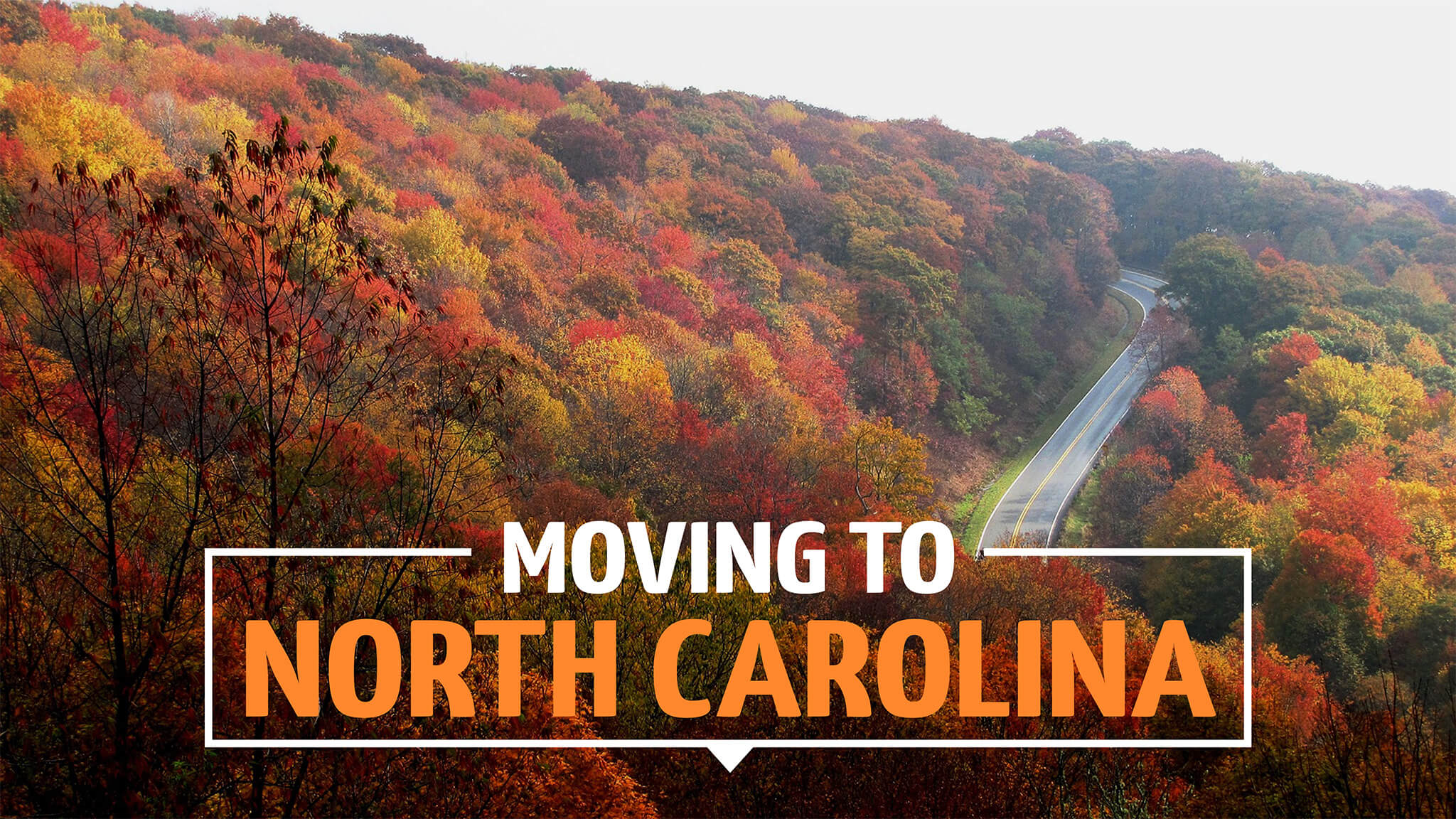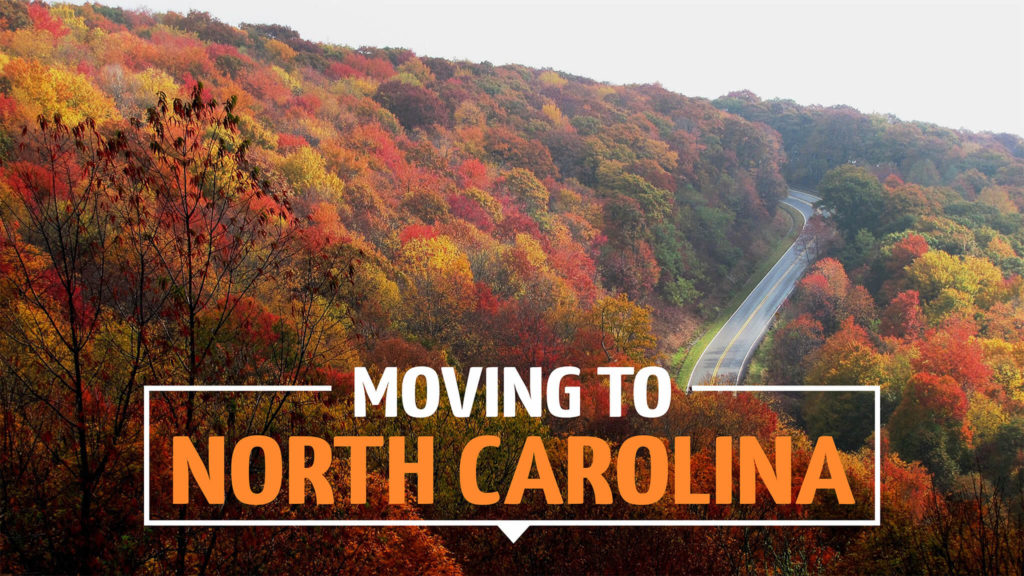It can be quite a confusing journey to figure out if a particular place is good for you or not. If relocating to North Carolina has got you stumped then we are here to help. Check out our exhaustive article on whether the decision to move to North Carolina is awesome or not.

Go through our well-detailed reviews on all the positives that people living in North Carolina experience at the same time analyze the negatives that the 9th– most populous state in America has to offer. Walk with us as we explore the potential that this State has to offer for anyone moving to North Carolina.
Find out what motivates people to move to North Carolina – is it the weather or the food or the affordability or is it a combination of everything, find out as we give it to you in simple terms.
[elementor-template id=”13242″]
1. Cost of living North Carolina
According to worldpopulationreview, North Carolina’s cost of living index is 94.9. It is comparatively lower than the united states index average of 100. North Carolina has lower costs of living than the rest of the United States on average. Compared with the national average, the cost of living in North Carolina typically costs 8.2% less.

This is a result of data from the Bureau of Economic Analysis. According to the cost of living ranking, North Carolina is the 19th cheapest state overall. 15 metropolitan areas are located in North Carolina.
In the Raleigh metro area, where the cost of living 4.8% more expensive than in the state as a whole, the cost of living is 3.4% lower than the national average.
| North Carolina | US | |
| Median Home Value | $165,900.00 | $204,900.00 |
| Median Monthly Rent | $877.00 | $1,023.00 |
| Average Car Insurance | $1,357.00 | $1,517.00 |
| Healthcare cost for Single Adult | $6,101.00 | $4,266.00 |
| Healthcare cost for family of four | $18,378.00 | $12,950.00 |
| Food cost for Single Adult | $3,103.00 | $3,240.00 |
| Food cost for family of four | $8,960.00 | $9,354.00 |
| Annual Child care cost | $8,105.00 | $8,903.00 |
| Annual Taxes | $6,987.00 | $6,542.00 |
2. Job market in North Carolina
According to U.S. News, North Carolina ranks 25 in the nation for employment. In North Carolina, the average household income is $73,753 While the median household income is $52,413. The most wanted job in North Carolina is Statistician With an Average annual salary of $101,010

According to the U.S. Bureau of Labor Statistics reports, North Carolina’s current unemployment rate in February 2021 was 5.7 %, which is lower than the 6.2% average Unemployment Rate in the United States. It is 7.6x more common for a worker in North Carolina to be a Clinical Trial Assistant than all U.S. workers.
The Most Common Jobs in North Carolina
| Rank | Job | Local Jobs | Mean Local Salary | Local Popularity Index |
| 1 | Retail salespersons | 94,490 | $22,053 | 1.0 |
| 2 | Cashiers | 77,020 | $15,635 | 1.0 |
| 3 | Combined food preparation and serving workers, including fast food | 65,580 | $14,234 | 1.3 |
| 4 | Laborers and freight, stock, and material movers, hand | 59,720 | $21,251 | 1.2 |
| 5 | Office clerks, general | 52,920 | $22,718 | 0.8 |
| 6 | Customer service representatives | 51,780 | $26,837 | 1.1 |
| 7 | Registered nurses | 51,740 | $51,967 | 1.0 |
| 8 | Waiters and waitresses | 50,390 | $15,135 | 1.0 |
| 9 | General and operations managers | 46,160 | $93,345 | 1.3 |
| 10 | Team assemblers | 44,960 | $23,836 | 2.0 |
Hghest-paying jobs in North Carolina
| Rank | Job Description | Average Salary | Entry Level Salary | # of Employee |
| 1 | Chief Executives | $204,790 | $72,330 | 3,490 |
| 2 | Family Medicine Physicians | $202,030 | $124,460 | 1,270 |
| 3 | All Other Physicians; and Ophthalmologists, Except Pediatric | $180,950 | $55,480 | 14,080 |
| 4 | Psychiatrists | $180,490 | $89,900 | 430 |
| 5 | Nurse Anesthetists | $179,520 | $137,050 | 3,190 |
| 6 | General Dentists | $167,780 | $96,510 | 3,440 |
| 7 | General Pediatricians | $154,600 | $111,980 | 800 |
| 8 | Natural Sciences Managers | $142,140 | $86,070 | 3,390 |
| 9 | Podiatrists | $141,960 | $73,660 | 200 |
| 10 | Physicists | $140,180 | $56,470 | 310 |
The largest employer in North Carolina
| # | Employer | City | Number of Employees |
| 1 | Msg Holdings LP | Morehead City | 10,000 |
| 2 | Property Management Childress | Charlotte | 10,000 |
| 3 | Collins Aerospace Systems | Charlotte | 8,000 |
| 4 | Wake Forest Baptist Med Ctr | Winston Salem | 7,850 |
| 5 | House of Raeford Farms Inc | Rose Hill | 6,000 |
| 6 | Smithfield Foods | Tar Heel | 6,000 |
| 7 | Spectrum | Charlotte | 6,000 |
| 8 | Bank of America Corp | Charlotte | 5,000 |
| 9 | East Carolina University | Greenville | 5,000 |
| 10 | Rex Health Care Inc | Raleigh | 4,842 |
3. Tax rates in North Carolina
North Carolina’s tax structure was reformed in 2013 by the North Carolina Tax Simplification and Reduction Act. There used to be a progressive income tax in North Carolina, ranging in rate from 6% to 7.75%. Newly introduced legislation introduced the state’s first flat tax and doubled the standard deduction.

Taxpayers of all levels of income were able to enjoy significant tax reductions through this initiative. Sales taxes, property taxes, and a gas tax are some of the other taxes paid by North Carolinians, along with the state income tax. A new law, passed in 2013, repealed North Carolina’s estate tax.
North Carolina income Tax:
North Carolina State has a flat income tax rate of 5.25% applicable to dividends and interest income.
North Carolina Sales Tax:
North Carolina State is ranked 35 nationwide. In North Carolina, the state sales tax is 4.75% and the average local tax rate is 2.22%.
North Carolina Property Tax:
According to the U.S. Census Bureau, North Carolina state’s median property tax is $ 1,322 with an effective property tax rate of 0.81 %.
North Carolina Gas Tax:
North Carolina State has a $0.3635 / gallon gasoline tax and a $0.3635 / gallon diesel tax.
North Carolina Cigarettes Tax:
North Carolina State ranks 48th out of 50 states in the cigarette tax. In North Carolina, the cigarette tax per pack of 20 is $0.45.
4. Economy in North Carolina
North Carolina is currently ranked 5th for its economic outlook and 12th for economic performance rank. According to the COVID-19 Economic Envelope Index, North Carolina is exposed to COVID-19 at the 50th highest economic level. 1,786,501 employees in North Carolina are exposed to COVID-19 to a great extent, totaling 35%.

There are 10,488,084 people in North Carolina, and the average annual population growth was 1.1% over the past five years, which ranks 11th out of the 50 U.S. states. Over the past five years, North Carolina’s gross domestic product has grown by 2.3%, totaling $508.6 billion. Out of 50 U.S. states, North Carolina’s GSP growth rate is ranked 17th.
5. Education in North Carolina
According to U.S. News, North Carolina is ranked 7th overall in the United States education system, 7th for higher education, and 15th for Pre-K-12. North Carolina is ranked 28th for quality of education in public schools among all 50 states by WalletHub. North Carolina schools spend $9,377 per pupil for a total of $13.6 billion annually.

That’s the equivalent of 3% of taxpayer income. 113,310 college students graduate annually in North Carolina. The cost of the average community college in North Carolina is $2,570 for In-state tuition and $8,750 for out-of-state tuition. In North Carolina, public university costs $17,821 which is less than the national average of $21,216.
| Rank | 40 |
| State | North Carolina |
| In-State Total | $17,821 |
| In-State Tuition & Fees | $7,389 |
| Room & Board | $10,432 |
| Out-Of-State Tuition & Fees | $23,657 |
2021 Best Colleges in North Carolina
- Duke University
- University of North Carolina at Chapel Hill
- Davidson College
- Wake Forest University
- North Carolina State University at Raleigh
- Western Carolina University
- Appalachian State University
- University of North Carolina Wilmington
- Salem College
- University of North Carolina at Charlotte
[elementor-template id=”13252″]
6. Healthcare in North Carolina
In North Carolina, you can find a wide range of health care options. Duke University Hospital in Durham is North Carolina’s top-ranked university. As one of the country’s top hospitals for adult and pediatric specialties, the hospital performs 9 procedures more than any other.

In terms of health care, it is ranked 2nd in the state by the University of North Carolina Hospital. In the adult specialty rankings, it is ranked 8th, and in the pediatric specialty rankings, it is ranked 9th. In seven conditions and procedures, the hospital is rated highly.
According to Healthgrades, Wake Forest Baptist Medical Center in North Carolina’s 3rd best hospital. It has also been recognized for its excellence in a number of procedures, including 9 in Winston-Salem.
Best Hospitals in North Carolina
- Duke University Hospital
- University of North Carolina Hospitals
- Carolinas Medical Center
- Vidant Medical Center
- UNC Rex Hospital
- Moses H. Cone Memorial Hospital
- Wake Forest Baptist Medical Center
- Mission Hospital-Asheville
- CarolinaEast Medical Center
- FirstHealth Moore Regional Hospital
7. Housing prices in North Carolina
North Carolina’s real estate market has not been spared from rising home prices due to historically low mortgage rates, wage growth, and more available inventory. North Carolina has experienced a faster average price increase than other states due in part to the city of Charlotte and Raleigh.

With COVID-19 in place, price increases are expected to moderate. In combination with a resilient economy and improved affordability, that should help make the housing market more active. Investors, buyers, and sellers alike should have plenty of opportunities in the foreseeable future.
In the Charlotte-Concord-Gastonia metropolitan area, the median home value is $240,278. According to Realtor.com, the median list price of Charlotte is currently $315,000.
According to homesnacks.com here are the
Most Affordable Places To Live In North Carolina
- Sawmills
- Marion
- Hamlet
- King
- Archdale
- Newton
- Winterville
- Nashville
- Trinity
- Albemarle
Most expensive places to live in North Carolina for 2021:
- Boone
- Asheville
- Carrboro
- Woodfin
- Wilmington
- Morehead City
- St. James
- Kill Devil Hills
- Hendersonville
- Pineville
8. Public transportation in North Carolina
In addition to taxis and personal vehicles that can be rented, such as limousines, there are other modes of public transportation. In the communities in which they operate, taxi companies must obtain business licenses. Nearly all North Carolina cities and towns with a population of more than 25,000 have taxi services.

You will find a list of six public transportation modes below. North Carolina has four interstate highways, 77, 85, 95, and 40. NC By Train and Amtrak operate daily passenger trains running from Raleigh to Charlotte, with stops in seven cities and towns.
In the United States, ferries operated by NCDOT transport about 850,000 vehicles and two million passengers annually
8 public transportation in North Carolina
- GoRaleigh
- R-Line Free
- Chapel Hill Transit
- GoTriangle
- CATS
- GoDurham
- Greensboro Transit Agency
- Asheville Rides Transit
9. Moving to North Carolina DMV

How to get a new driver’s license in North Carolina?
There is a lot of bureaucratic work involved in moving to a new state – including transferring some of your documents. After moving to North Carolina, one of the first things you will need to do is obtain a driver’s license. Activating your ID can be done within 60 days of the deadline, according to the state’s DMV.
Following is a step-by-step guide to obtaining a North Carolina driver’s license:
- Learn about traffic laws in North Carolina.
- schedule your DMV appointment.
- Provide necessary documents.
- Pass written and/or road test.
Which documents are required to get a driving license in North Carolina?
- Your out-of-state license
- Residential proof in North Carolina.
- Identity proof
- Your Social Security card.
- insurance coverage.
[elementor-template id=”13257″]
10. Weather in North Carolina
Except for the high slopes of the Appalachian Mountain range, the climate of North Carolina is mainly subtropical humid except for a highland humid subtropical type. Hot and humid summers contrast with dry and cold winters.

There are rarely extreme winter temperatures in the valleys, with January temperatures between 20°F and 45°F. Midsummer is cooler along the coast than inland regions, with ocean temperatures below 80°F (26.7°C). In comparison to summer, spring has more pleasant weather.
By the latter half of autumn, temperatures drop rapidly. North Carolina has significantly different temperatures depending on altitude. Within the state as a whole, snowfall ranges from a mere two inches (50.8mm) to as much as 16 inches (406.4mm) in the southern mountains.
Weather hazards
Tropical storms, hurricanes, flash floods, and floods keep North Carolina at risk. North Carolina’s coast has two opposing currents that produce rough weather. Flash floods often occur in the late spring in the mountains and rivers flood due to excessive rainfall.
Floods are caused by tropical cyclones in the Piedmont region each autumn. Coastal areas can be severely damaged by multiple hurricanes, leading to flooding.
is moving to North Carolina worth it?
The advantages of living in North Carolina, which ranks #18 overall, are numerous. Among the most expensive places to live in America in North Carolina, which is also one of the cheapest among the highest unemployment rates in the country.
North Carolina is relatively safe to move your family to, even if some cities are more dangerous than others. North Carolina may not have the best health care system in the country, but it does have some of the best hospitals, such as Duke University Hospital.
You’re more likely to find a job in North Carolina if you’re in the food industry, education, or manufacturing. The median house price in North Carolina is lower than the national average, so it’s a great place for families looking to buy real estate.
[elementor-template id=”13247″]
Things to Do in North Carolina
- Biltmore
- Billy Graham Library
- North Carolina Museum of Natural Sciences
- Battleship North Carolina
- Joyce Kilmer Memorial Forest
- International Civil Rights Center & Museum
- Mingo Falls
- The North Carolina Arboretum
- Greensboro Science Center
- Museum of the Cherokee Indian
- Foggy Mountain Gem Mine
- Sarah P. Duke Gardens
- Old Salem Museums & Gardens
- Smoky Mountain Trains Museum
- Fontana Lake
- Airborne and Special Operations Museum
- Blue Ridge Parkway
- Great Smoky Mountains Railroad
- Tweetsie Railroad
- Oconaluftee Indian Village
Pros and Cons of Living in North Carolina
Pros
- Outdoor Adventures
North Carolina is an ideal state for adventure seekers. Here, you can enjoy Road Trips, Hiking, Rock Climbing, Kayaking, Biking, etc.
- Stunning Natural Beauty
The state is home to the beautiful coastline and majestic mountains where you can enjoy picturesque sights and peaceful vibes.
- Relatively Low Cost Of Living
The overall cost of living index in North Carolina is around 10% lower than the country’s average. Moreover, groceries, transportation, and other utilities are also available at a pocket-friendly price.
- Affordable Housing
Owning a house in this state is highly affordable. The median housing cost in North Carolina is 19% less than the country’s index. You can simply buy a house here by just spending $187,300.
- Pleasurable Climate
It offers a relatively temperate climate to enjoy. The average temperature in Winters is around 50°F across the state and it never climbs above 90°F in Summers.
- Slower Pace of life
Life in North Carolina tends to move a little slower as compared to other states in the country.
- Job Growth
The job market in North Carolina has increased by 1.7% over the last year. The future job growth over the next ten years is envisaged to be 37.6% which is more than the US average.
- Excellent Food & Beverage options
This state is home to some of the best restaurants in the country and is loaded with over 170 breweries.
Cons
- Higher Tax Rates
Residents here are likely to experience heavy tax burdens. North Carolina has a state and local tax rate of 10.61%.
- Crime Rate
The property crime rate in North Carolina stands at 37.7% which is way more than the national average.
- Lack of seasons
The concept of four seasons doesn’t exist in the state of North Carolina. Summers are intensely hot and snow is rare.
- Hurricane-prone area
The risk of hurricane damage should be considered before relocating to North Carolina. The warnings are typically higher for the households that live closer to the coast.
- Poor education system
North Carolina ranks #32 out of 50 states for the quality of its education. The state has the 6th lowest per-student expenditure rate in the country.
- Lower Income and Salaries
The average salary of North Carolinians is about $25,608 per year, way lesser than the US average.
[elementor-template id=”11713″]
